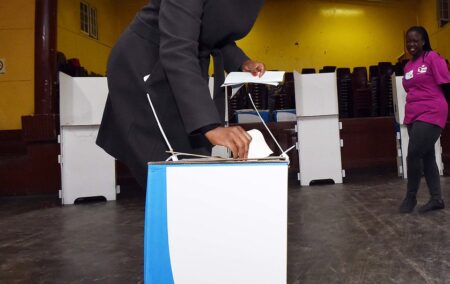The ANC will have to contest the 27 October municipal election without candidates in over 90 municipalities, unless the Constitutional Court hands it a ‘get-out-of-jail free’ card by postponing the poll.
This, the IRR says in a statement, is the inference to be drawn from the ANC on Tuesday withdrawing an application it submitted to the Electoral Court on Monday for an order to reopen the candidate lists for municipal elections.
In its own papers, the ANC cited difficulties arising from morale among unpaid ANC staff.
The IRR said: ‘The ANC has locked itself into an electoral trap, especially in KZN – but if the Constitutional Court postpones the national municipal elections and calls for the whole process to begin afresh, the ANC may look back on this moment as one of expedience. While other parties struggled, and succeeded, in completing their candidate lists, the ANC’s failure to do so will make no practical difference. It will, so to say, get out of jail free.’
Commented IRR head of campaigns Gabriel Crouse: ‘To see why this matters democratically, remember that in 2016 the ANC spent over R1 billion on campaigning during the municipal elections, but still dropped 8 basis points to 54%. If it took a similar knock this time the ANC would fall below 50% nationally, on the basic trend of poor service delivery, brazen corruption, and resultant falling standards of living. But this time is different.
‘This time the ANC goes into the national municipal campaign unable to pay its taxes, pensions, polling agents, or even its own staff. This time the ANC goes into the campaign on the back of riots in which over 300 people died. This time the ANC goes into an election with a single potential route to holding its national majority, namely that the election is postponed beyond the Constitution’s deadline [set in an amendment] signed by the late President Nelson Mandela in 1998.’
Crouse added: ‘Only the ConCourt has the power to decide whether granting the ANC this get-out-of-jail-free card would be fair on the public in the face of a pandemic that could not break the election cycles of Zambia, and a hundred other countries.’

